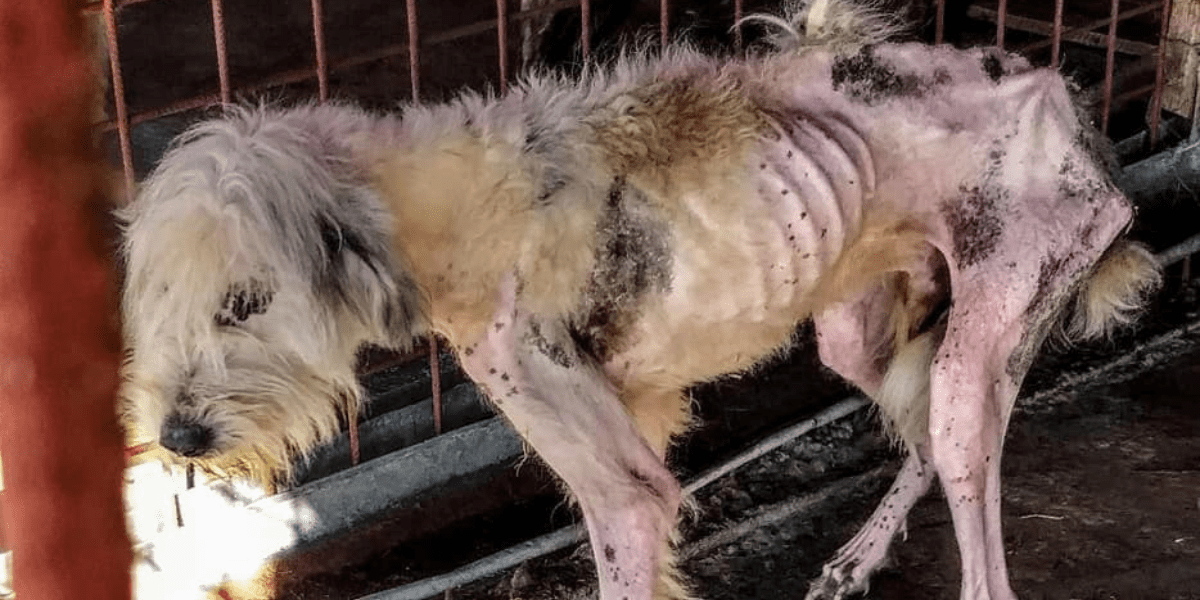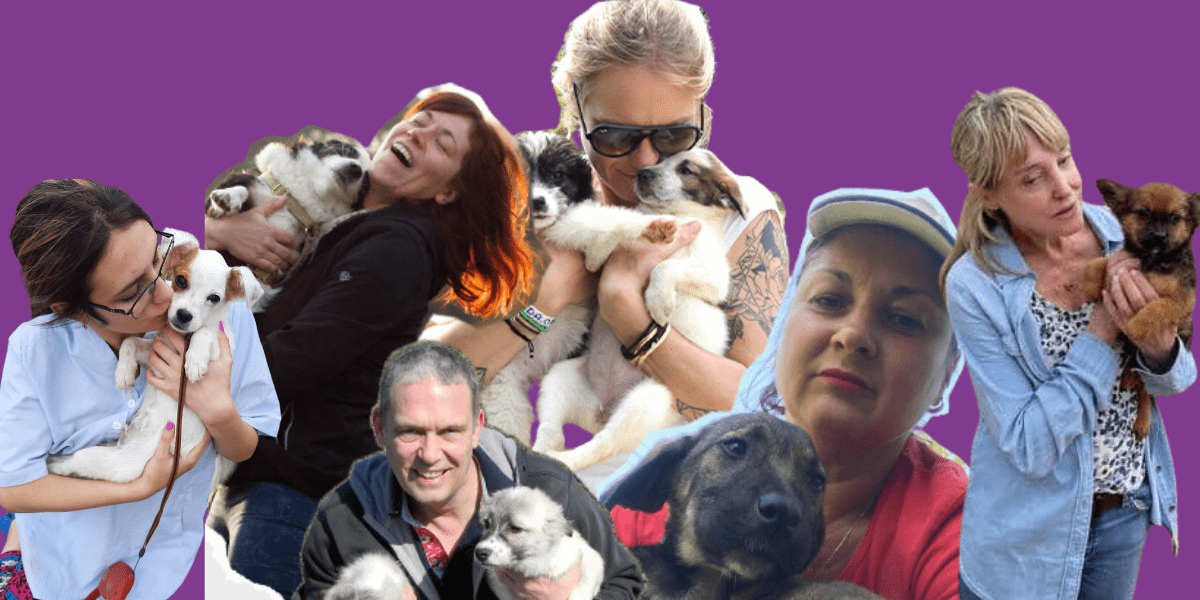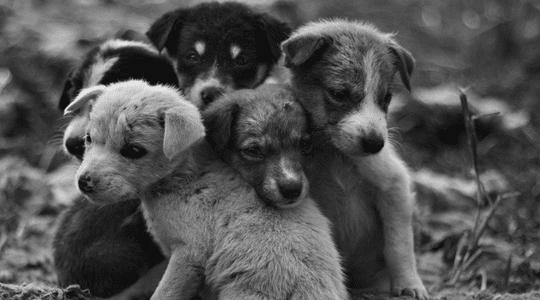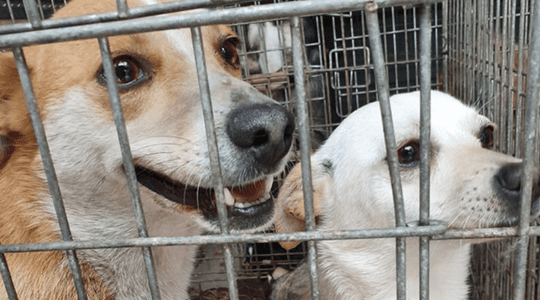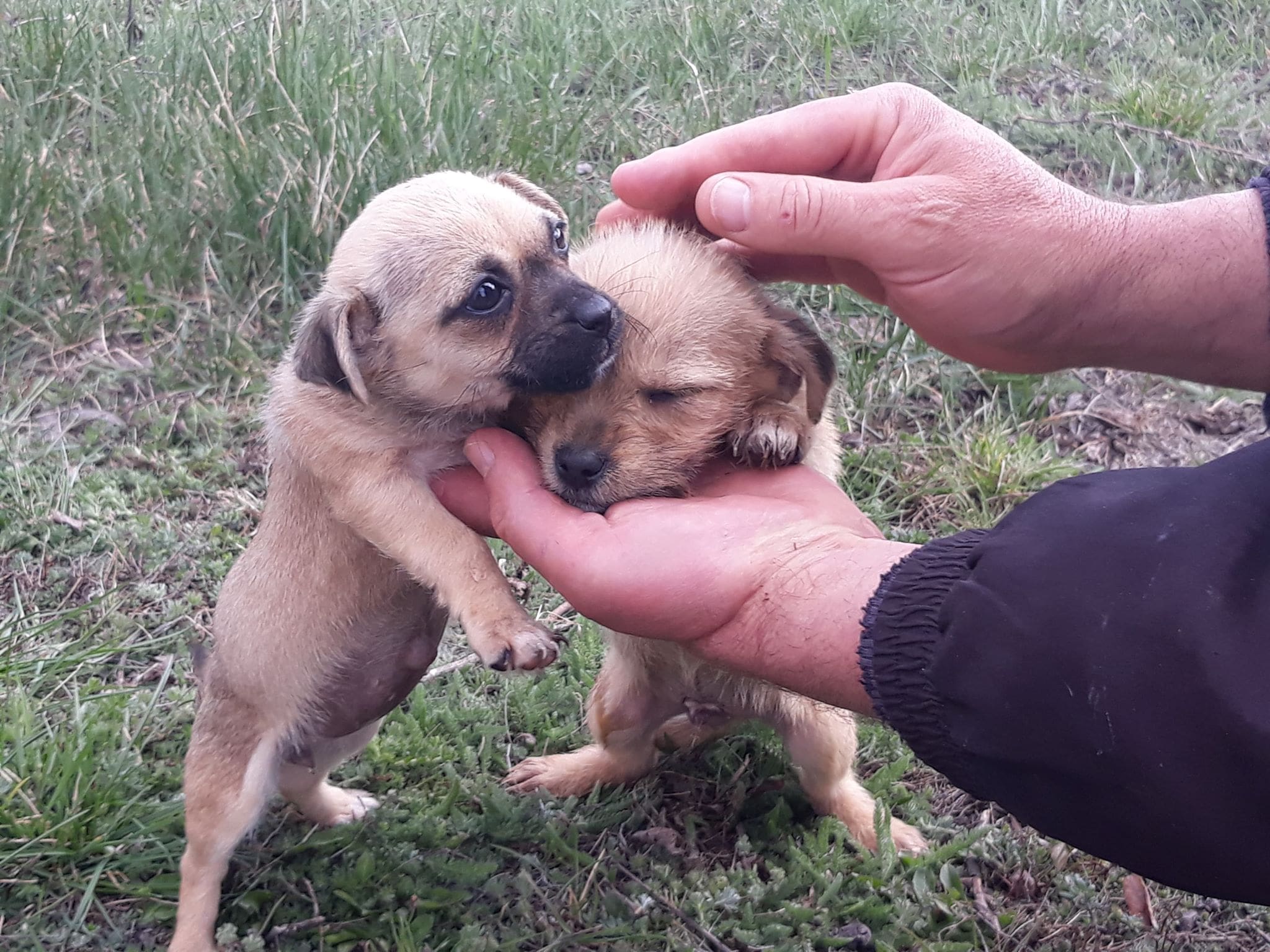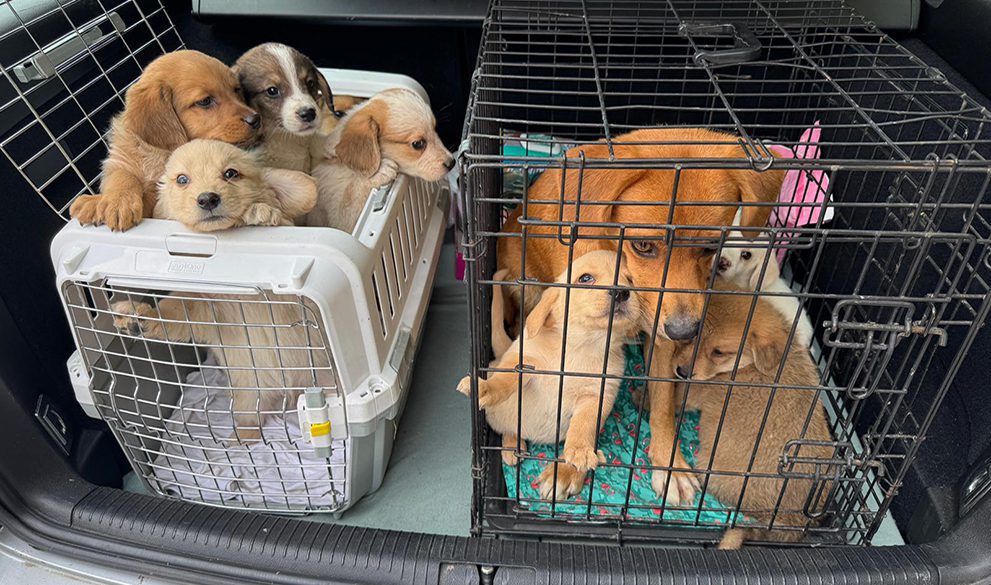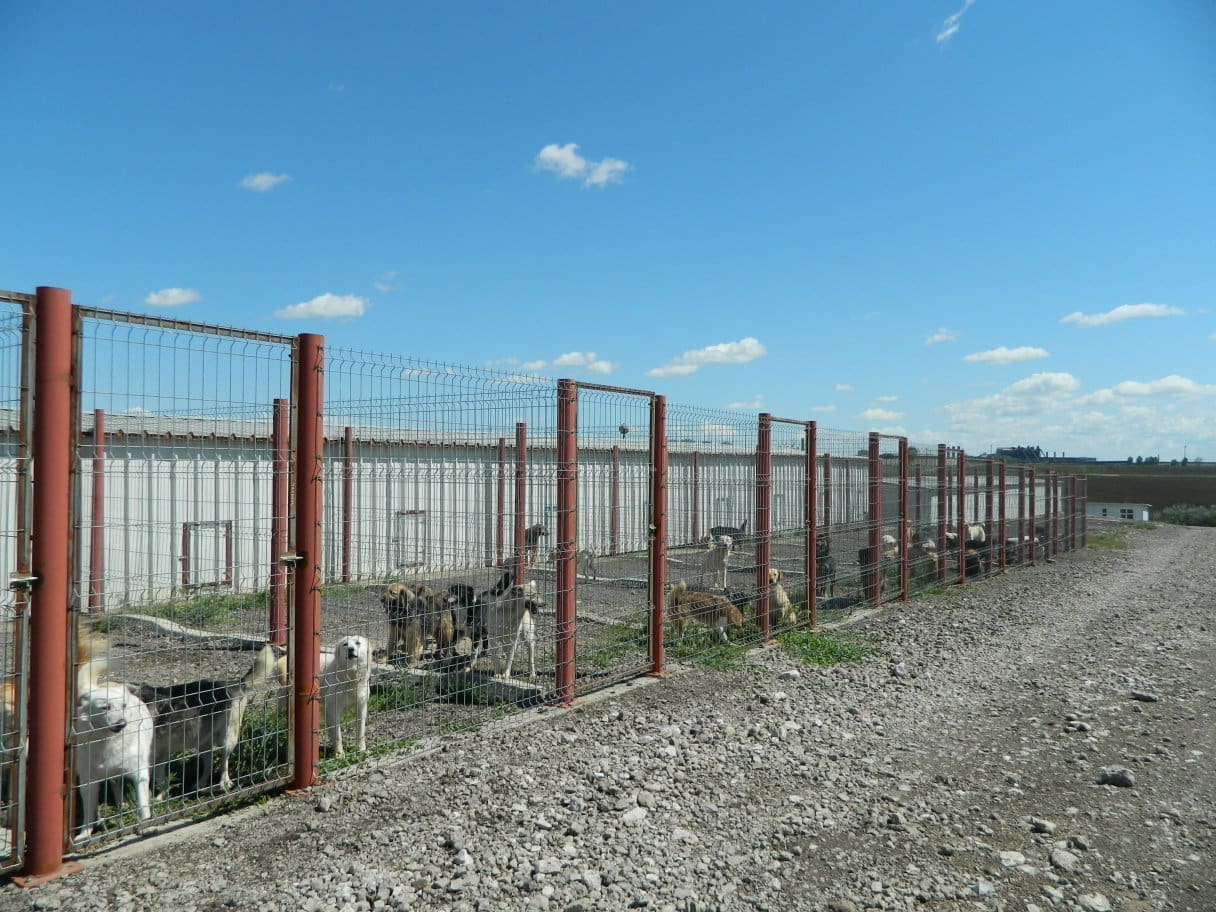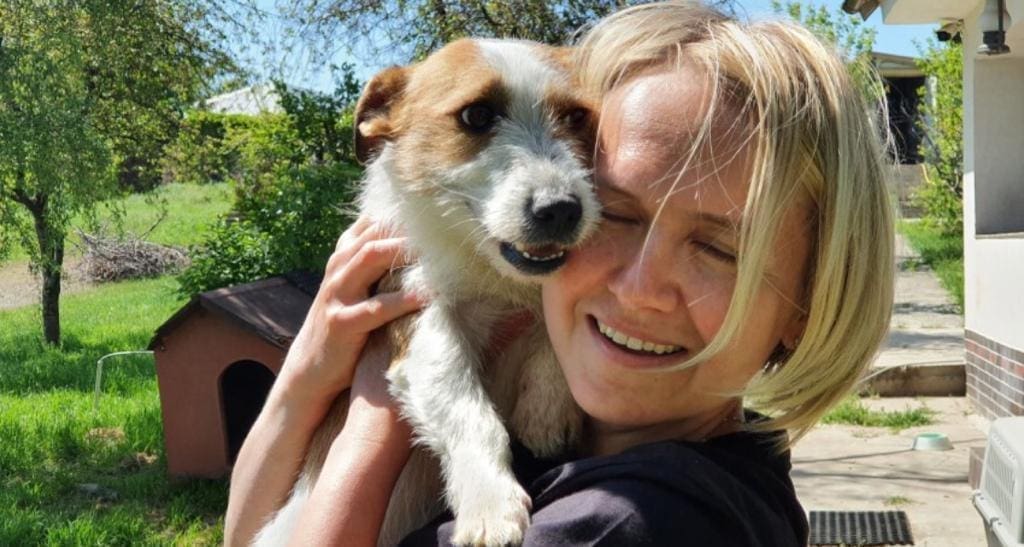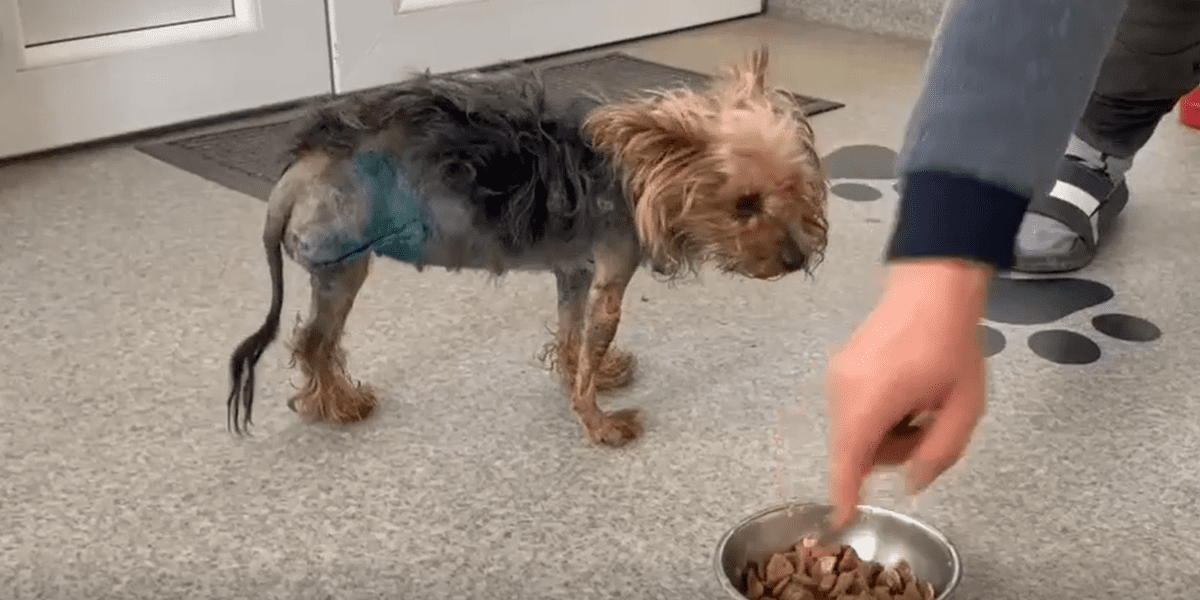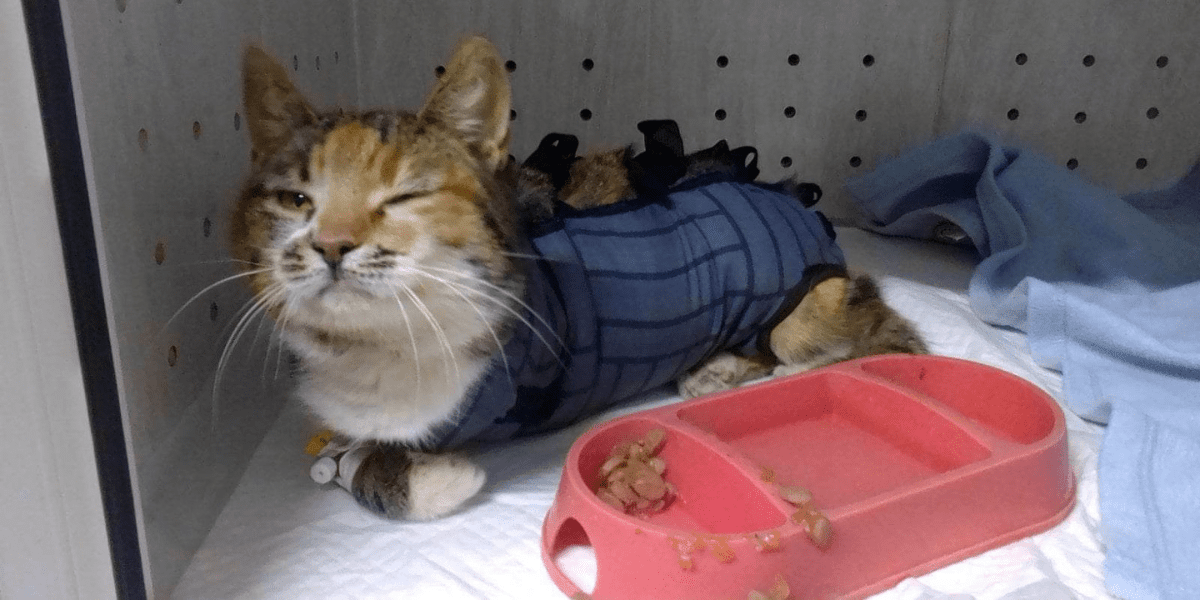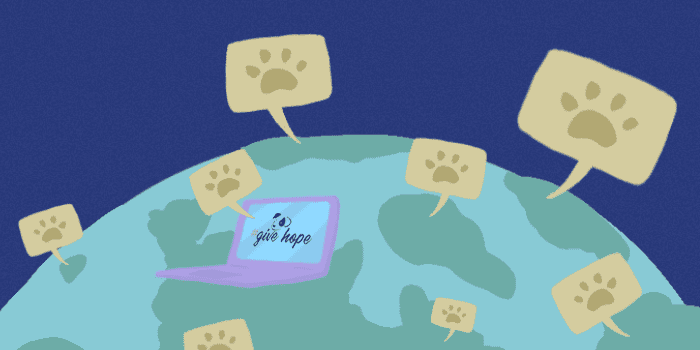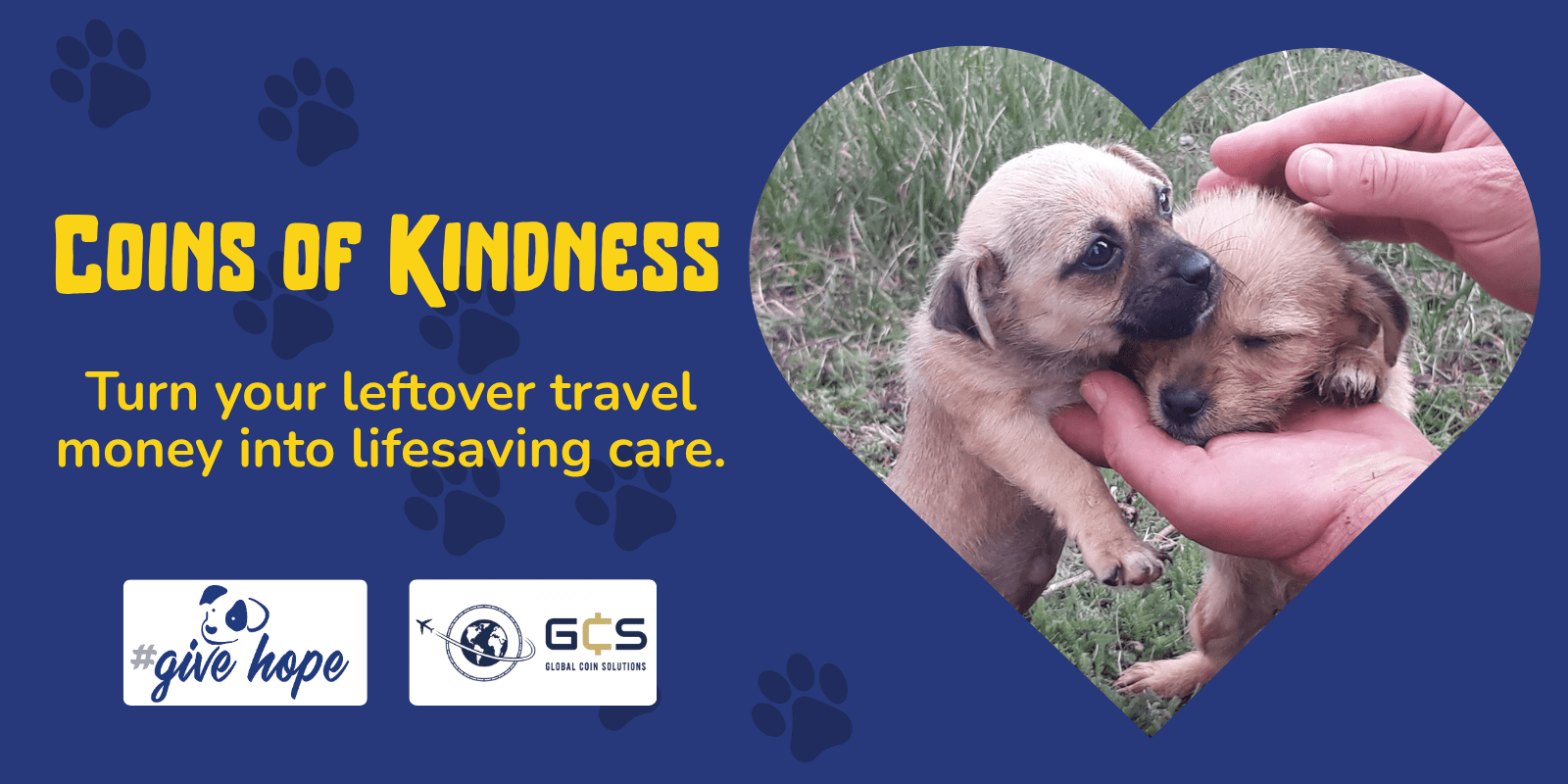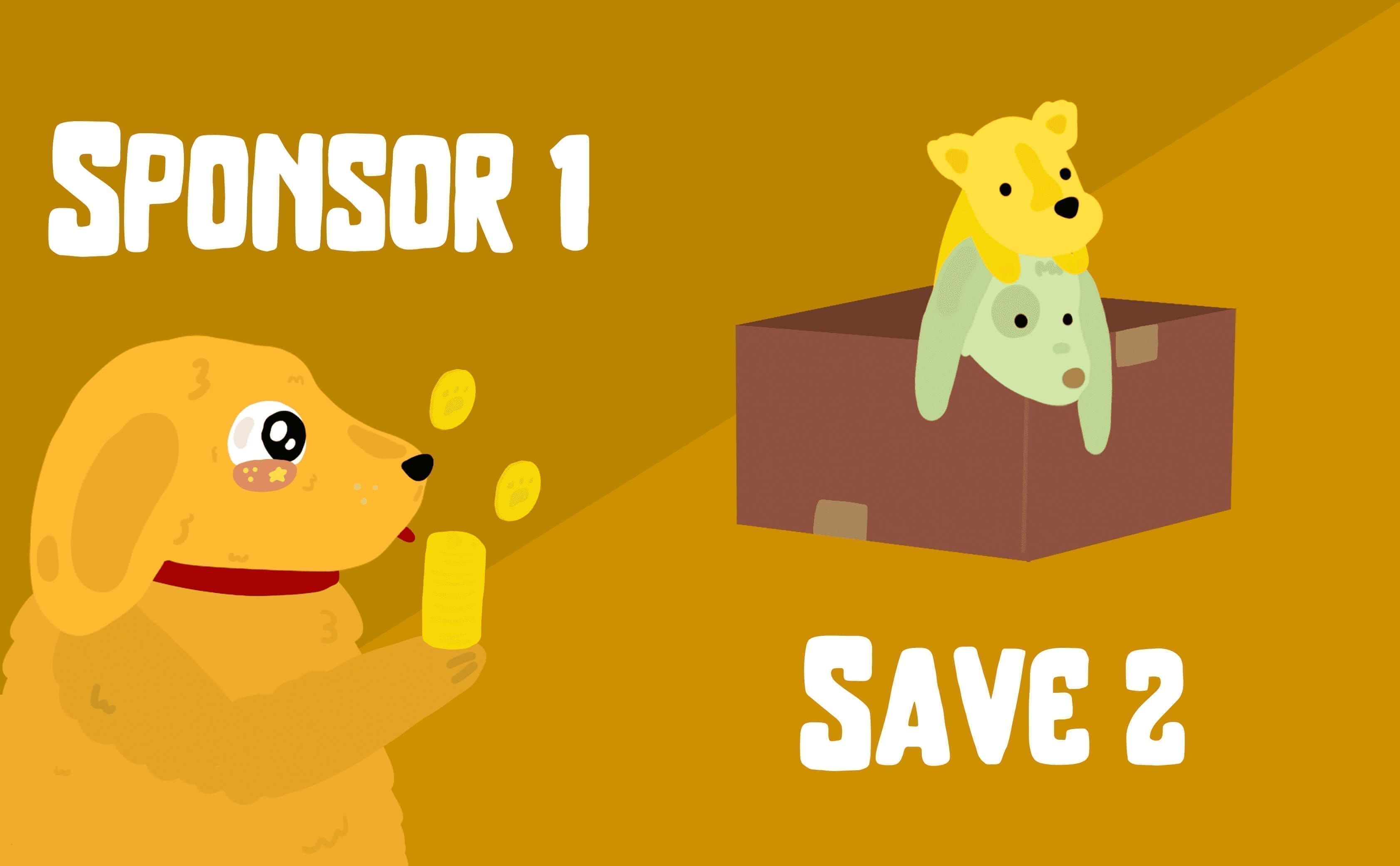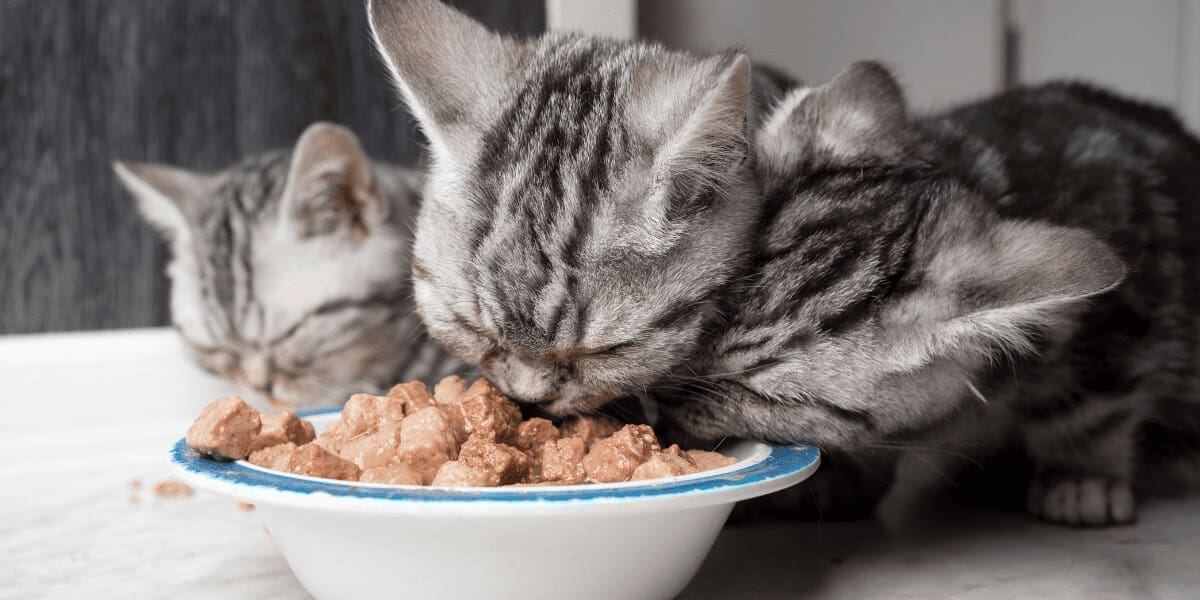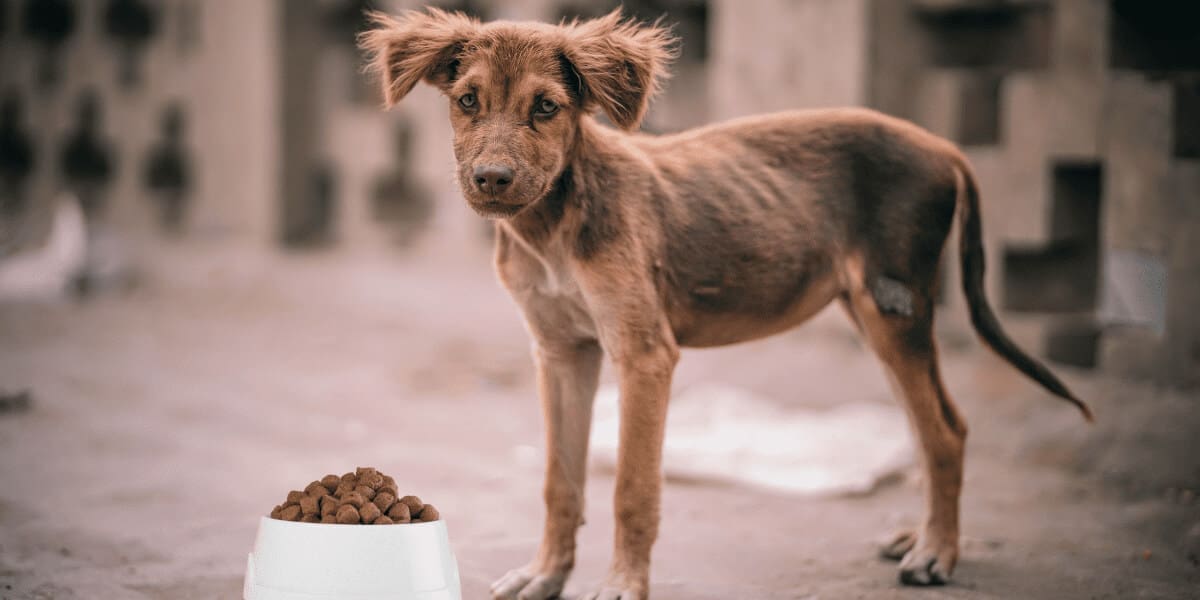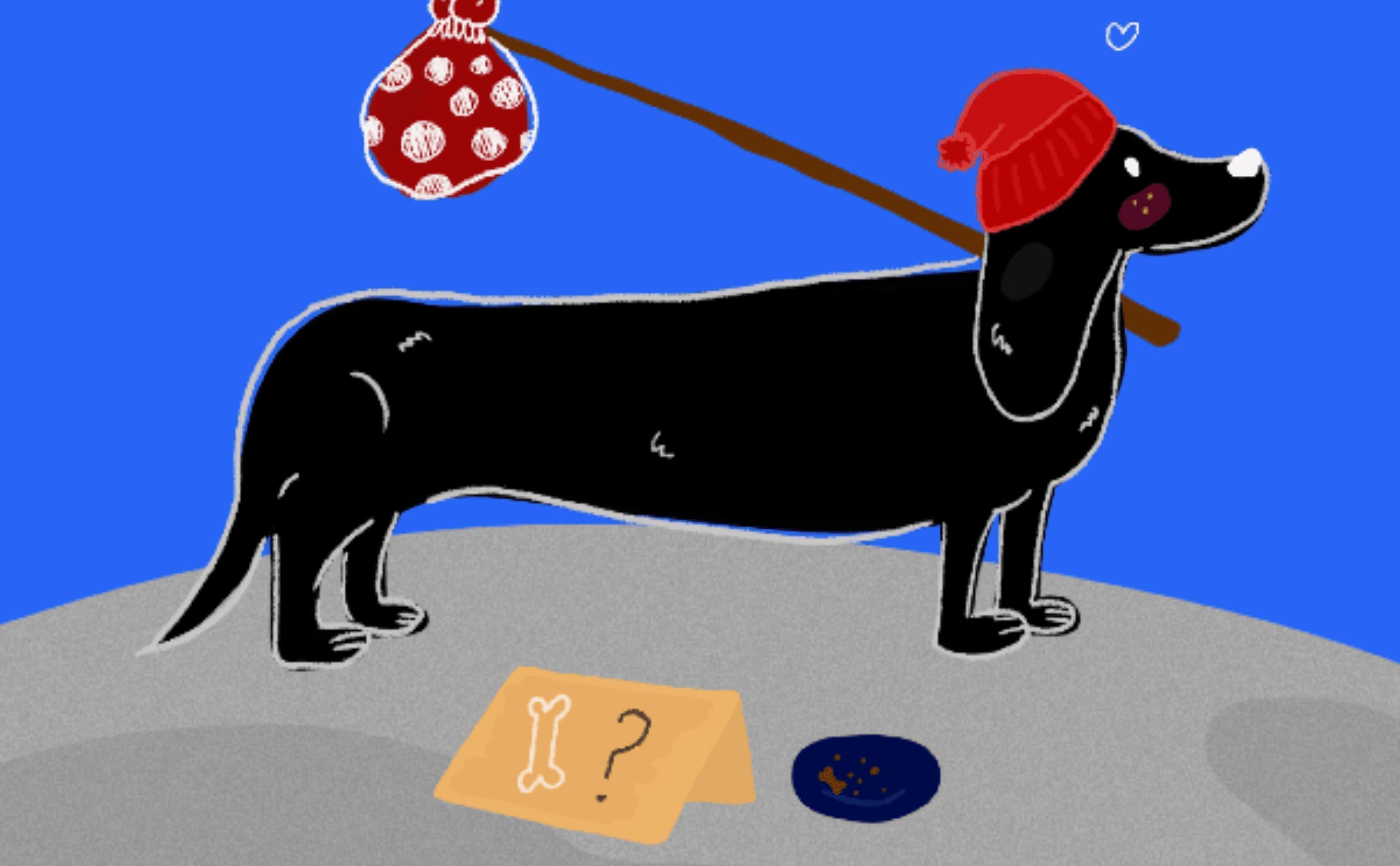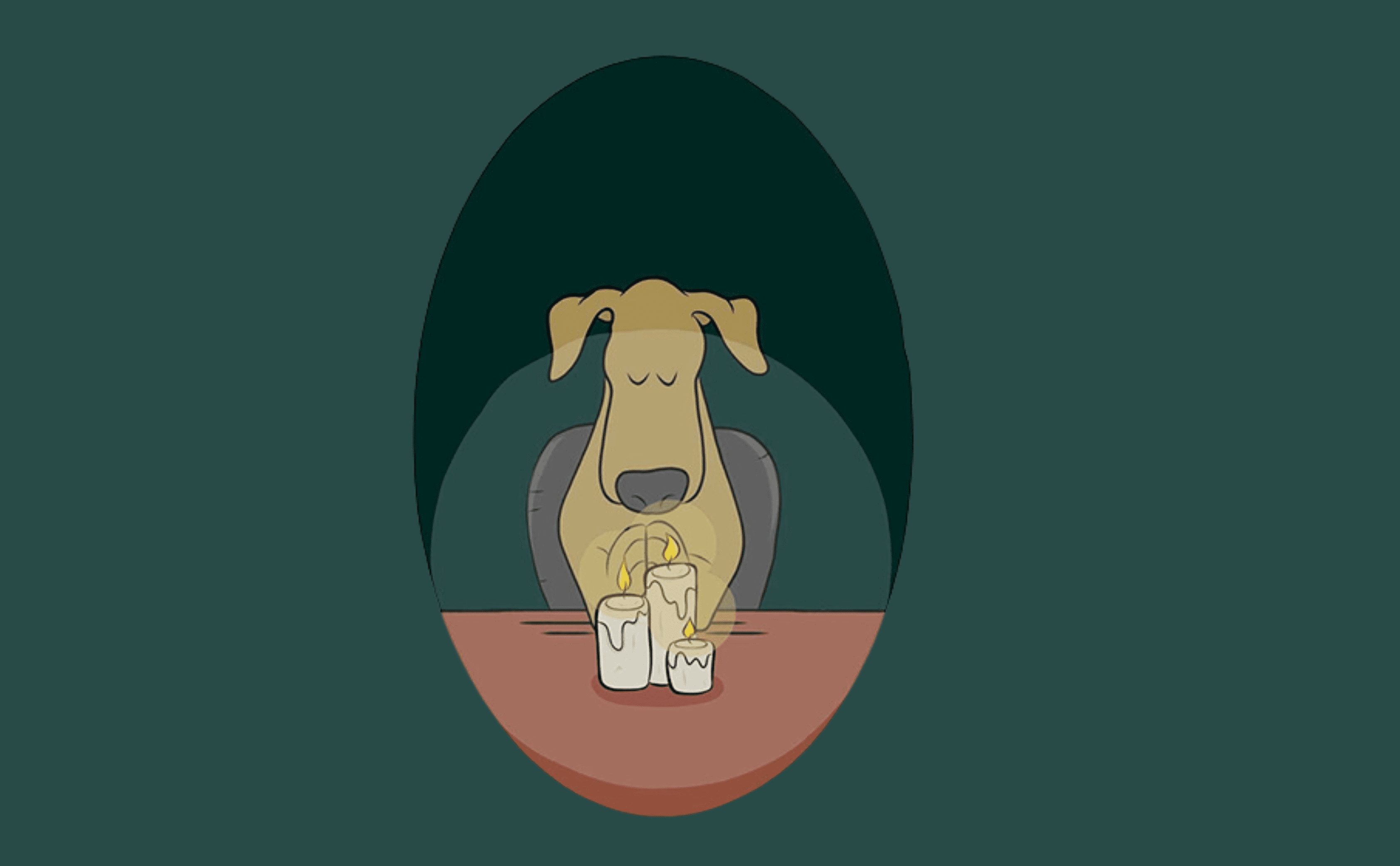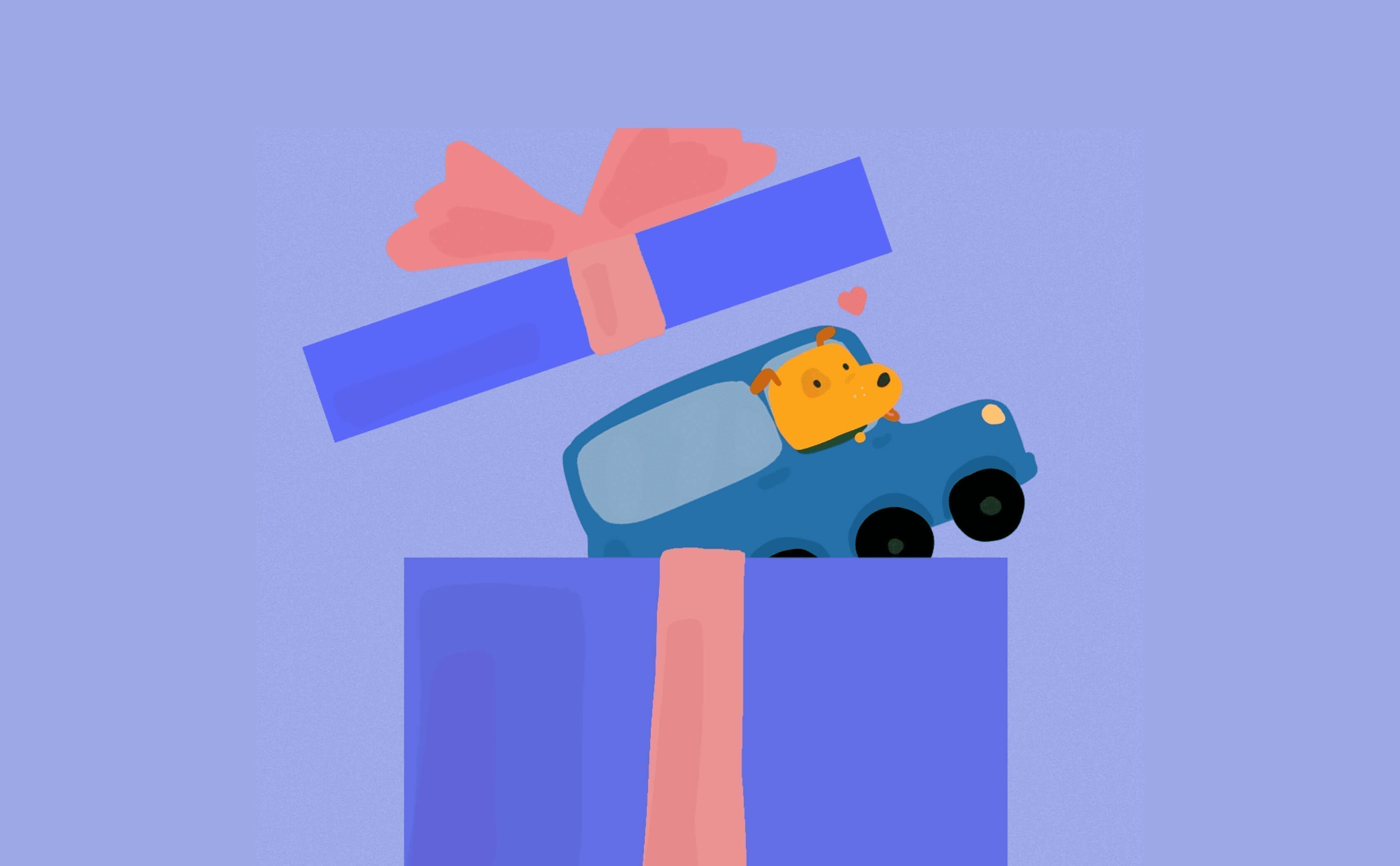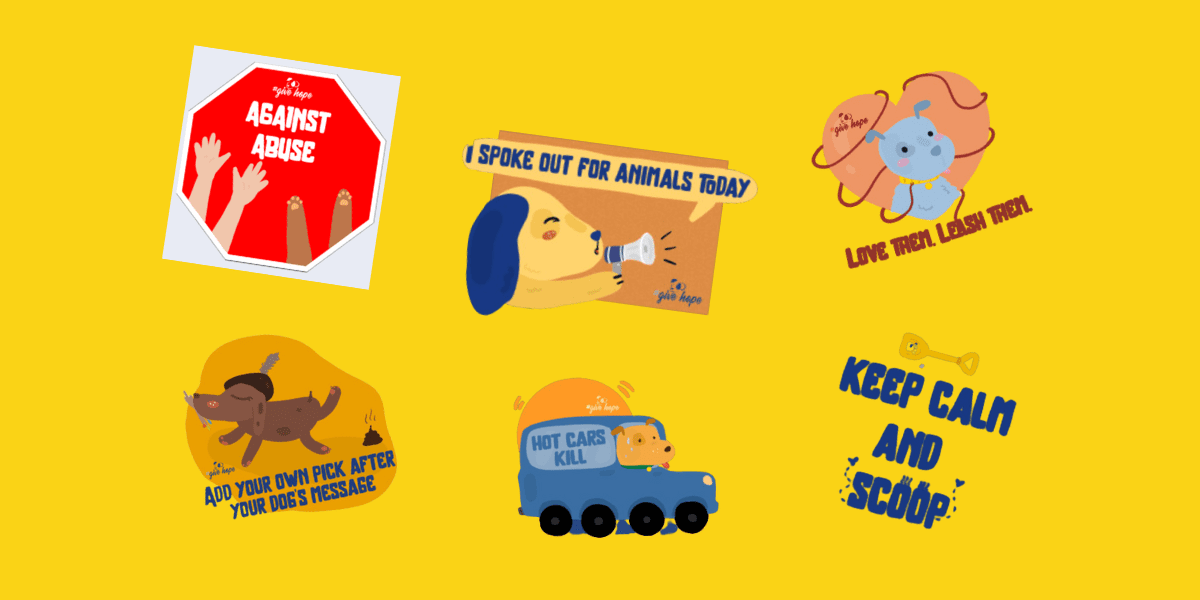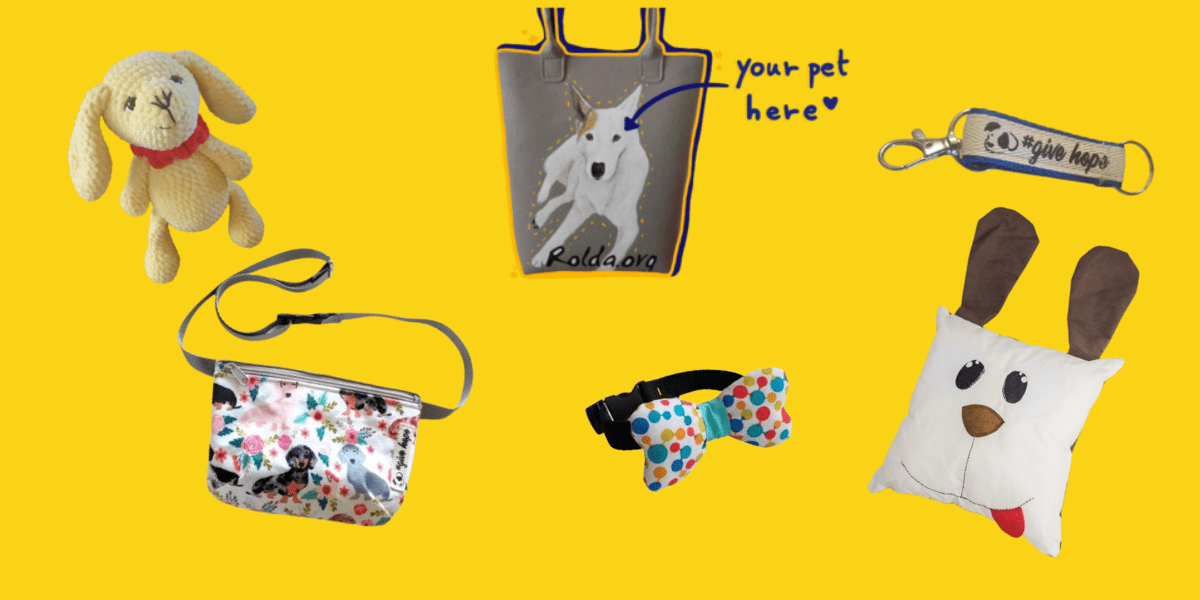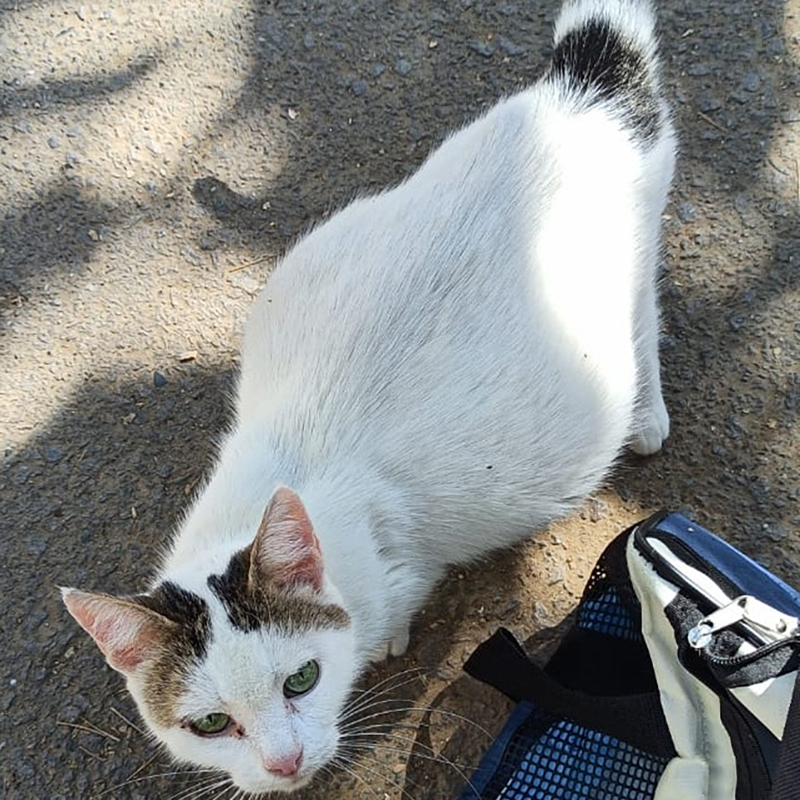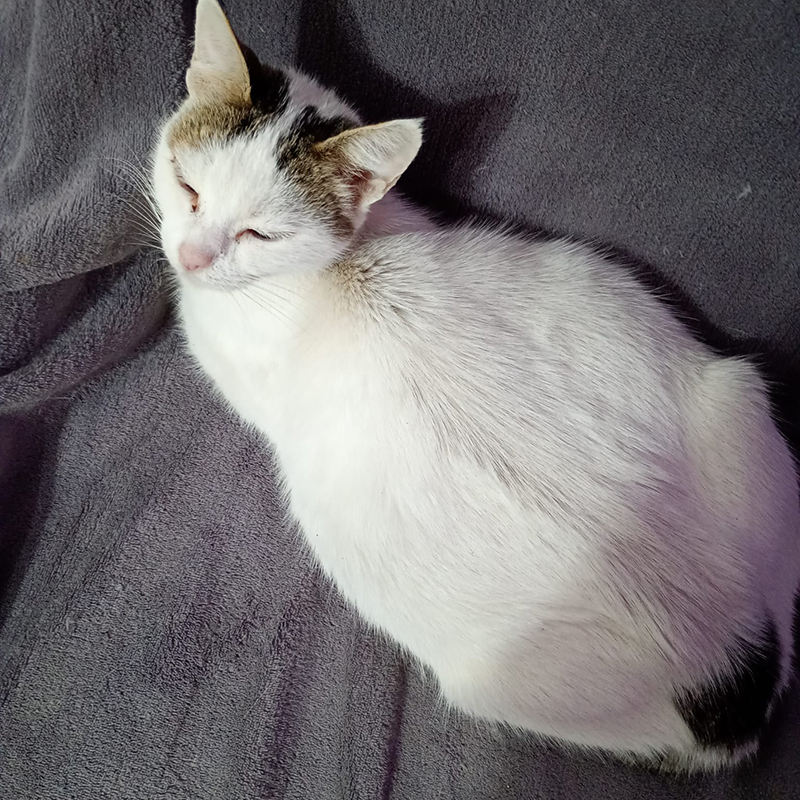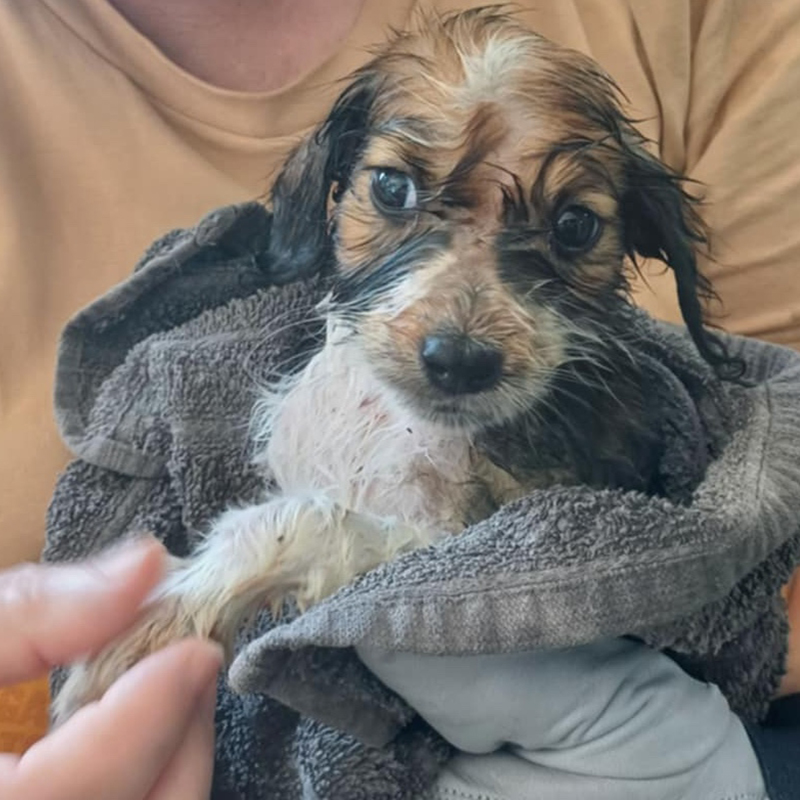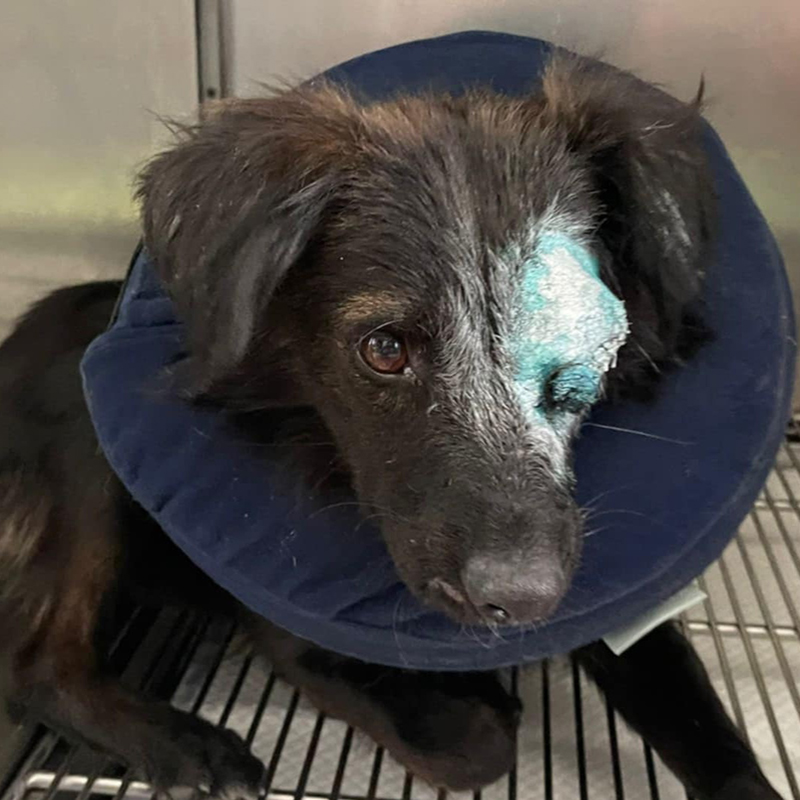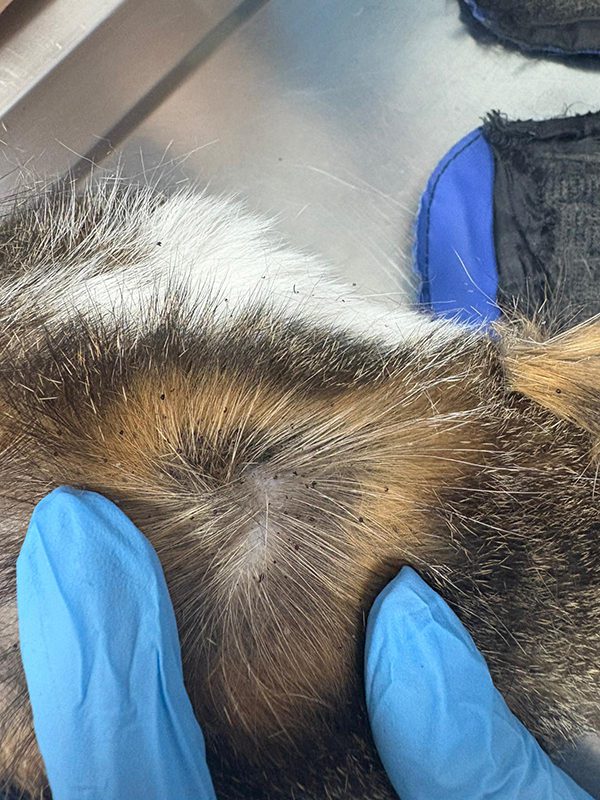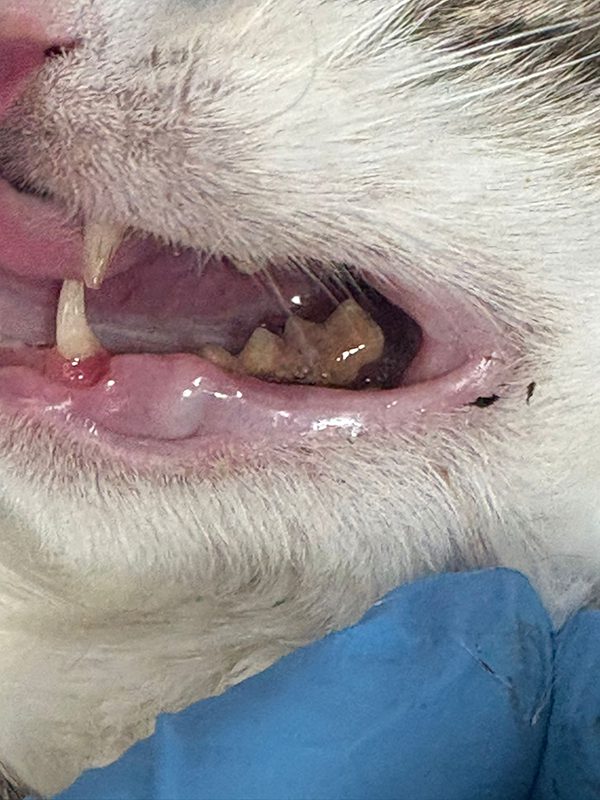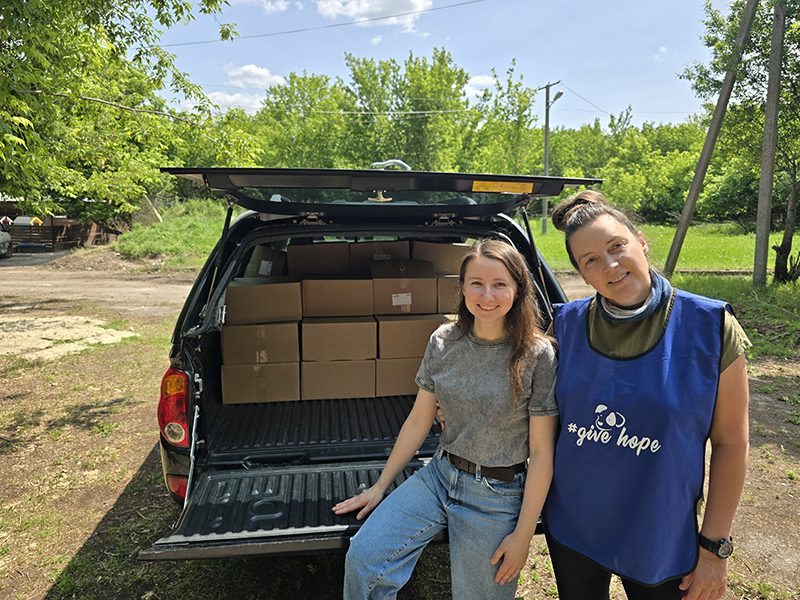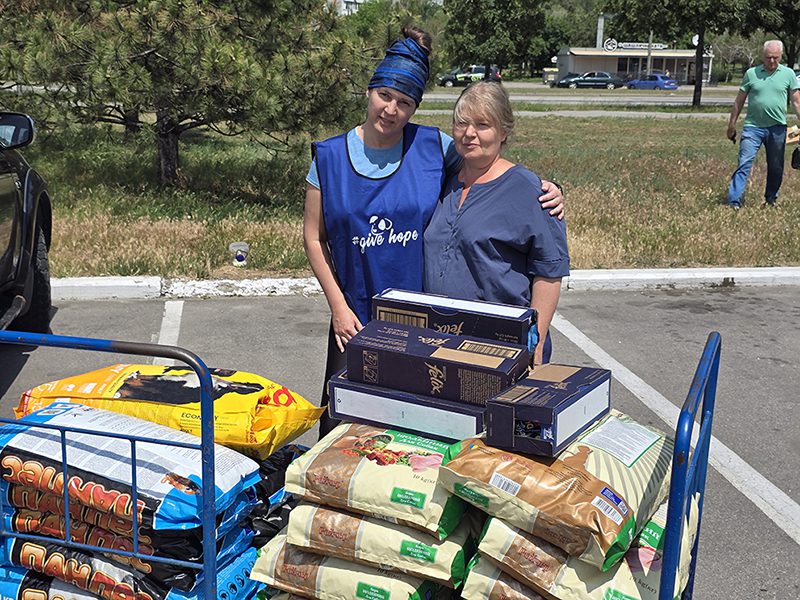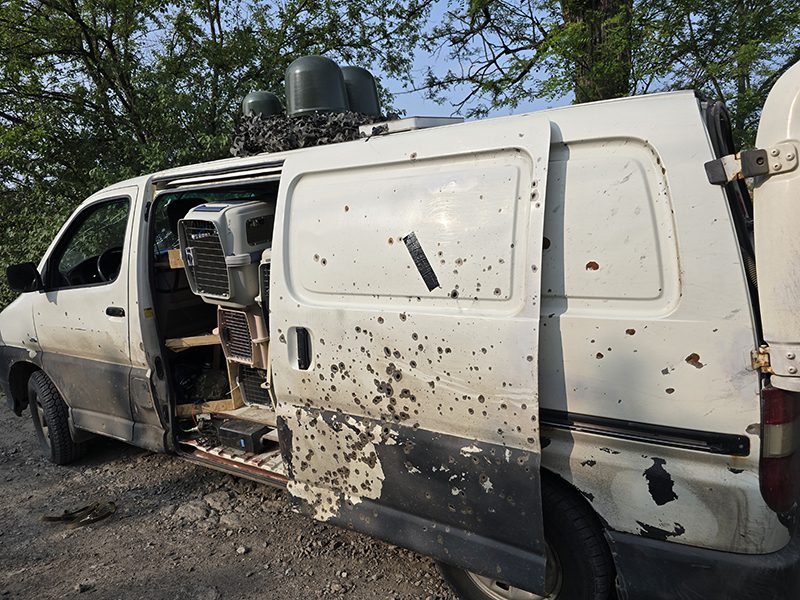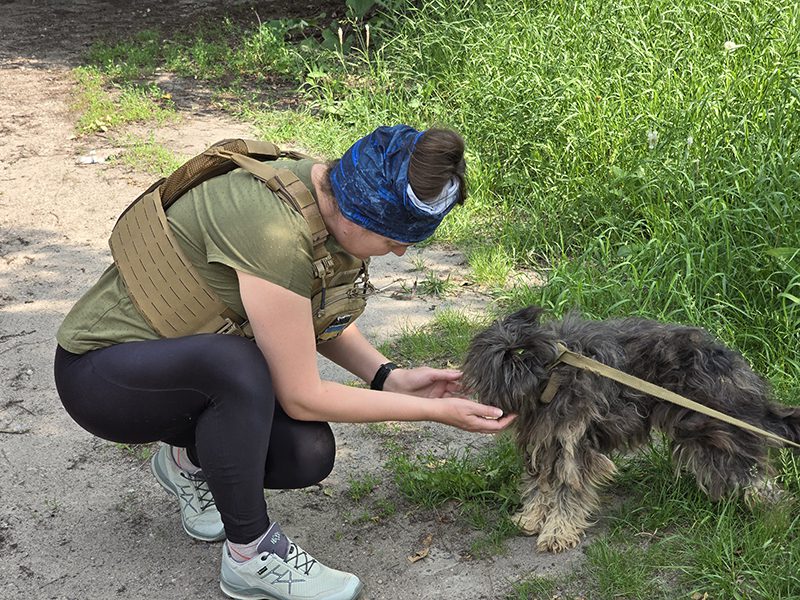One of the most recent cases we have been asked to help with is Mica, a little cat whose life has sadly taken a sudden and brutal turn.
The woman who contacted us had often seen Mica wandering near her apartment block. The woman noticed Mica’s belly beginning to swell and grow steadily larger for several months. The woman was somewhat surprised. She believed Mica had already been spayed during one of last year’s campaigns. So she thought the spaying had not worked, or it might be something such as internal parasites. She could not afford a vet visit and tried a few herbal remedies, but nothing helped.
When she reached out to us, Mica’s belly had become so enlarged that even moving was difficult for her. We knew she needed urgent veterinary help.
We rushed her straight to the vet clinic with a phone call en route to discuss the situation and arrange a priority consultation. Even the veterinary team was shocked by the size of her stomach when we arrived. Instant blood tests came back without significant problems, but the ultrasound showed her abdomen was full of fluid. A sample confirmed it was not normal fluid, but mixed with blood and tissue fragments. With no clear answers, the vets decided to operate and see what was going on.
What they discovered was heartbreaking. Mica had never been spayed, and her entire reproductive system was severely inflamed and infected, causing the enormous fluid buildup. The vets removed everything, drained her abdomen and kept her on fluids and medication. She looked exhausted and frail after surgery, but she finally had a chance to recover.
Then came another devastating discovery. When the uterus and ovaries were examined, they found a large cauliflower-shaped tumour. Cancer. The tumour has been sent to the lab, and we are waiting for results.
For now, Mica is stable. She is under close monitoring, receiving treatment, and slowly beginning to recover. It will take time before she feels strong again, but she is showing her fighting spirit.
Mica’s case is a harsh reminder of how important it is to notice when an animal is in trouble. Her story could have ended very differently. The discovery of cancer has made her road ahead uncertain, but at least she now has a chance. She is no longer alone on the streets but is receiving treatment and comfort. With time and care, we hope she has many more days filled with safety and kindness ahead of her.
From discussing abandoned dog rescues to sharing lessons through football, Dana Costin guides the conversation with the podcast host, highlighting empathy, dedication, and the power of small actions to make a difference.
1. What is your first memory of an animal?
My first memory is of a half-breed dog named Suru. He was a big dog, or at least that was how he seemed to me, and I was around 4 or 6 at the time. I thought of him as my dog, although he belonged to my aunt and my grandmother, who lived in the countryside. His fur was grey and white. He was very gentle and had the warmest eyes, ones I will never forget.
My first memory is of sitting with him on the front door steps and sharing a plain crescent roll—one piece for me, one for him. Unfortunately, he died from poisoning on the village road, like many dogs used to die back then in the 90s, and some still do in the rural parts of the country.
2. Which was the most beautiful and most impactful moment in football?
Liverpool – Olympiakos, final score 3 – 1, in December 2004. It was the first time I saw Steven Gerrard from Liverpool playing. I instantly appreciated him, and despite his retirement, he is still the best football player I have ever seen on the field. He had a style similar to mine (amateur level), with long, gorgeous passes and compelling long-distance shots. I, too, used to love to shoot from a distance—so much so that I used to practice long-distance shots for hours, alone, with no help, in any kind of weather.
If I’m not mistaken, in that match, for Liverpool to advance in the group, they had to beat Olympiakos by two goals. The 3 to 1 goal was a superb kick Gerrard did from approximately 25 meters from the goalpost. I liked it so much that I have been a Liverpool supporter ever since. That season of the Champions League also included that epic final match against Milan, in which the Italians led 3 to 0 at halftime.
3. Your biggest football-related disappointment?
There are two of those. Both are related to the Romanian National Football team. With the first one, I was a child, and it was during the World Championship in America, in 1994. I was eight at the time, and after the legendary victory of Romania against Argentina, I fell asleep. And I fell asleep so deeply that my mother did not manage to wake me up to show me out the window the thousands of people pouring down the streets, going down to the house of Daniel Prodan’s parents, who lived two streets down from us. I was highly disappointed that I did not get to see them.
I consoled myself at the thought of the coming match with Sweden. I cannot and will never forget our goalkeeper, Florin Prunea’s blunder, which cost us a monumental qualification in the semifinals of that world championship. After the Argentina match, my mother could not wake me up, then after the one with Sweden, she could not stop me from crying… I never saw a giant crowd of people like the one I missed after the Argentina match.
My second big disappointment was during the next World Championship, the one in France, when we were knocked out in the Round of 16 by Croatia, with a 1-0 score, after a successful penalty shot from Davor Suker, a player I liked, apart from that particular match. I cried after that match also 😊
I used to experience every one of the National team’s matches with great intensity, probably due to the naivety of my age. At the Euro 2000, when we defeated England 3-2, before the penalty shot, I watched with the prayer book in my hands, actively praying for victory. After Ganea’s goal, I ran out on the balcony and, in my burst of excitement, I slammed against the balcony railing. My mom thought I had fallen off 😊. I’m laughing now, but she did not laugh then, not at all 😊
4. What do you think about the connection between young kids, junior players, and animals? What are your conclusions from what you heard from the guests?
There are two nuances here: young people’s general connection with animals and football players’ connection with animals. As far as young people go, in general, I discovered through podcasts positive aspects like young people who love and respect animals, as well as deeply concerning things about young people who disregard animals, torture, and even kill them in ruthless ways.
I have only heard good and interesting things regarding football players and their bond with animals, especially with dogs. Namely, these kids are more responsible, work harder, are more empathetic, and are more prone to sacrificing and making an effort for the team. I got this feedback from a football coach working with 50 children. It’s not scientific research, but I believe that animals can positively impact the attitude and lives of young people, regardless of the types of extra-curricular activities they do.
5. Your vision on the ideal team (active professional players): 11 players, no reserves
I will devise a 4-3-3 system: Allison Becker, Trent Alexander-Arnold, Virgil van Dijk, Radu Dragusin, Théo Hernandez, Jude Bellingham, Pedri, Luka Modric, Salah, Lewandowski, Yamal.
6. How do you think/hope that your podcasts are changing our world?
I think and hope that they do at the same time. I think they help the world we live in and the animals by promoting education. At least in Romania, education on the animal world, from needs to specifics, from acceptance to respect, is lacking.
People still don’t understand that Romania is a country of abandoned dogs. They don’t even want to understand. This is because the subject is of no interest to them whatsoever. They think it does not affect them in any way, but they are wrong because everything is connected when it comes to life and the well-being of a nation. Romania would be a country with better-educated and just better people if the problem of stray cats and dogs were fixed.
I hope that my podcast is changing the world because I want the messages I promote in these podcasts to reach as many people as possible, slowly. If out of one hundred people, only one understands, has an epiphany, and decides to do something about this, it is already a massive gain.
This is mainly because that person will no doubt influence those around them; if they have children, they will educate them to respect and love animals. The message will reach across generations because their children will also teach them to love animals. So, I believe podcasts have great power, including the power to change the world.
7. Name one cause that would determine you to change the world around you (other than ROLDA).
I think about this cause very often. It is an enormous and significant cause for us, and one that people are completely ignoring. It is called Terra, our planet, our only home. And I don’t say this because I want to come off as a wise benefactor, but because I have been passionate about astronomy since I was a child. I have understood ever since the universal perspective, the position and the place our planet holds in the Universe. As a planet, we are tiny and vulnerable compared to the violent and endless Cosmos. Yes, I know, the Universe is beautiful, but also very chaotic and aggressive. And what do we do in our own home? We willingly destroy it, and we are slowly wiping ourselves out as a species. We don’t believe in the danger of deforestation, pollution, global warming, or the role and importance of animals in the ecosystem. I know it is a science fiction scenario, but we might have to look for a new home sooner to continue living as a species.
We don’t think about this because we are stuck on national beliefs only intended to exploit and make money—beliefs that often encourage ignorance, manipulation, corruption, and wars. We will never evolve as a species unless we develop planetary consciousness. Let’s all put the planet first and forget about borders. This would also mean a planet without famine and wars; unfortunately, we are far from that. We might need 1000 more years to get to that point.
Maybe we won’t see the day our actions destroy the planet, and neither will our children, their children, or their grandchildren. But we must think about this problem and try to fix something.

8. How would you teach a dog anything about football?
I wouldn’t want to teach a dog anything about football if this meant forcing anything about his nature and instincts. I don’t think a dog would have to know too much about football, unless we are talking about basic play. I don’t even want to think about ball tricks or other aberrations.
Of course, dogs need basic training, and I would leave it at that. However, I would teach him to play with the ball outdoors and rejoice with me when our favorite team scores a goal indoors. I would teach him that football means joy.
Also, a moderate reaction to the joy of a goal. If you shout like a Neanderthal, your furry friend is bound to get a different idea about you and football.
9. How would you educate the world of football to support animals?
I would try to explain to them more than just the animals’ plea. I don’t know whether people realize it, but football can be a real ‘weapon’ for peace. This sport is so popular worldwide that it could bring forward any of the world’s major problems, and people would better understand and educate themselves even on matters they now choose to ignore.
For example, in Romania, football players help raise awareness about abandoned dogs in campaigns right before matches. But these cases are isolated. There would have to be a national campaign in this sense.
How would I educate the people in football about the cause of animals? There are many methods, but only one comes to mind more clearly. Namely, I would convince more world football celebrities to speak in press conferences or after the matches on the cause. It is not easy because, even here, personal interests, branding deals, financial issues, and more get in the way.
But I only think about what it would be like if Messi, once he is done playing football, had his own podcast about dogs (I know he loves dogs) in which he would tell people to stop abandoning and to start sterilizing dogs. I don’t think his words would be ignored.
10. What message would you send to a football idol (someone no longer living) to do differently and change the story he has already written?
A complicated question, but Duncan Edwards comes to my mind. Have you ever heard of Duncan Edwards? He used to be one of the players of Manchester United who died in the plane crash in Munich in 1958. He was 21.
This player fascinates me because I have heard several football experts say that he would have become, without a doubt, the greatest footballer of all time! It seems he was extraordinary in every position on the field, except as a goalkeeper.
My message to him would be not to get on that plane. I would have loved to see him and see whether he had become the greatest footballer.
11. Maradona: Legend or cheat?
The answer to this question is not complicated, but it is complex. Maradona was, without a doubt, a legend of world football.
The hand of God? Yes, you can clearly see in the footage that it was handball, and that goal won Argentina’s World Cup in 1986. Understandably, 90% of the planet can blame him, but if you try to empathize, you can see the patriotism, the ‘fanaticism’, and the ‘despair’ to do anything and everything for his country to win the World Cup. Suarez almost did the same thing at the 2010 World Cup when he stopped a ball on the goal line with his hand, knowing he was not a goalkeeper and would get a red card—everything for his country.
It’s easy to judge, but, without going into details, life has taught me that severe addictions people have for specific products are mainly caused by disease and trauma from childhood and more. Who am I to judge the effects of another person’s traumas?
Maradona himself says in a documentary that he would have been a greater footballer had he not struggled with addiction. Maybe it’s better for the beauty of football that Maradona wasn’t bigger. Why? Because then people would only say about Messi that he merely managed to match Maradona. But now, as far as I am concerned, Messi is greater even than Maradona.
In conclusion, Maradona is a football legend who loved the sport with all his being and who fought with all his might against the demons that did not want him to play anymore.
Not long ago, we received a message from a man in Brăila asking for our help. Not one, but two new mother dogs and their puppies were living in terrible conditions, stray, alone and barely surviving. He felt they were likely to start dying soon if left in their current circumstances. We were all immediately determined to save them and so offered to help.
With gentle coaxing and patience, he managed to collect all of the puppies and one of the mothers. When they arrived at our shelter, we placed them straight into quarantine. The pups were tiny, frightened, and shaking with every touch. At first, they cried constantly and bared their tiny teeth in fear, unsure if they could trust anyone. But after being washed, dewormed, and, of course, fed, their little worlds began to change. Today, they are calm, no longer cry at night, and no longer try to defend themselves against the protection, love and warmth they are offered here.
The second mother, a black dog, was much more challenging to reach – something we tried ourselves by driving out to visit her. For days, she refused help, too frightened to let anyone near, watching with wary eyes and keeping her distance.
When we finally gained some of her trust, we discovered the pain she was in. As we began to get closer, the extent of her pain became heartbreakingly clear. A cruel wire had twisted tightly around her leg, cutting so deeply into the flesh that every step must have been agony. Her body was thin and exhausted, her movements hesitant, as if she was bracing for more pain. Most heartbreaking of all was her eye, so severely injured that it was invariably blind. Terrified and weak, she stood trembling at any sudden movements, engrossed in fear.
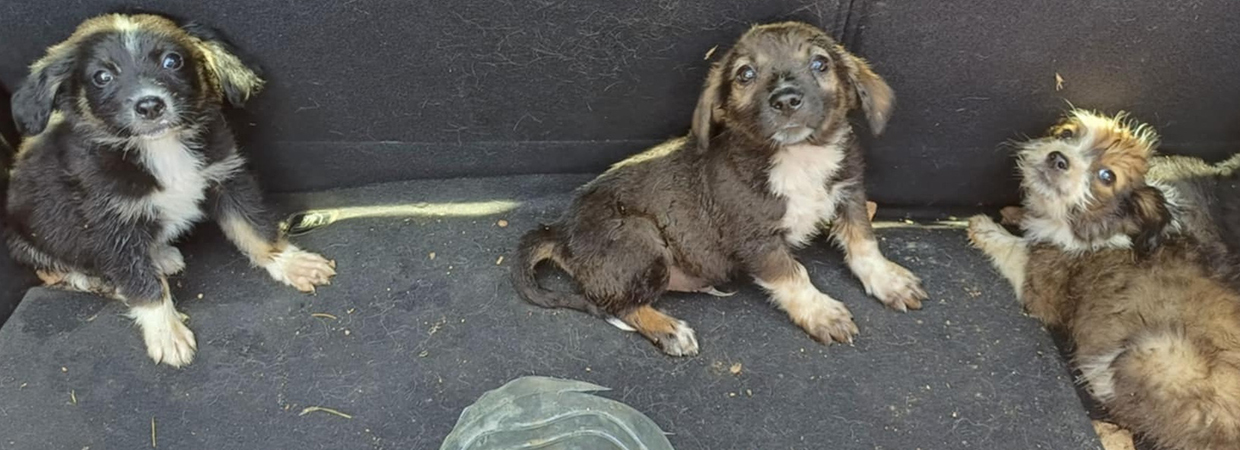
Eventually, she was convinced to let us hold her. She was taken straight into surgery, where the injured eye was removed and the wound on her leg carefully treated. Since then, her recovery has been steady and encouraging. Each day her body grows a little stronger, her energy returns, and her trust in the people around her slowly builds. She is starting to trust that life no longer has to be a constant fight for her or her puppies.
Now that both mothers and their puppies are safe, their next chapter can begin. The pups are growing up without fear, and the mothers can finally rest, knowing their little ones are cared for and will be fed.
Our greatest hope is that one day soon, they will each find the comfort of a forever home, surrounded by love and compassion. Until then, they remain with us, healing, growing stronger, and surrounded by kindness made possible by you and others with the compassion to support our work.
Joker, a stray Romanian dog, had stumbled across the building of his dreams. Taking up solo residence in the courtyard of an old multi-story apartment block, Joker was quickly doted upon by several elderly ladies.
All at age seventy-five or above, these sweet women collectively and informally took Joker into their care, looking after the stray as best as they could. Scraps of food filled Joker’s days until one day something horrible happened. Joker was hit by a car in the street outside.
Immediately, his guardian angels jumped into action and reached out to us for help. We rushed Joker to our emergency veterinary clinic, where the most seriously ill and injured animals are helped. Joker was in terrible shape. He had several fractures on his paw, a dislocated joint and a ligament rupture. The accident had put him in immense pain, but even worse, we did not know if he would ever be able to walk on his injured paw again.
The only option was surgery and long-term treatment. Now, after his first surgery, Joker is on his path to recovery. Every day, Joker’s wound is cleaned, treated with a special ointment, and followed by his prescribed medication.
So far, Joker seems to be recovering well. During his most recent checkup, an X-ray revealed that the bone is healing well without any complications. In another ten days, we will return to the clinic once again. If all goes well, the structure that is currently supporting his injured leg will be removed.
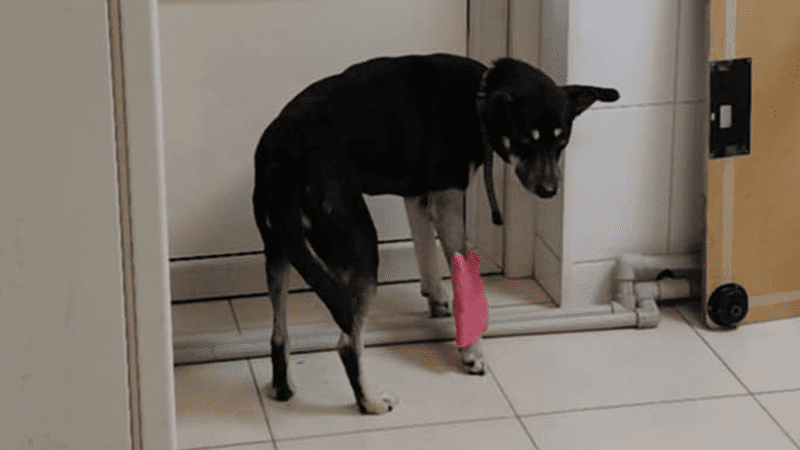
We have high hopes that with lots of care, love and determination, Joker might one day be able to use his paw comfortably again.
And when that day comes, we will find him the forever home he so deeply deserves. A place where he will no longer have to rely on scraps or sleep on cold pavement, but instead be surrounded by warmth, safety, and unconditional love. Joker may have once been a stray, but his future holds the promise of family, comfort, and the peaceful life every dog dreams of.
Styopa’s eye could not be saved
Meet Styopa, whose name means “crown” — and he’s proven himself worthy of it.
When a car struck Styopa, the impact was devastating. Frightened, injured, and losing his eye, he tumbled into a nearby hole where most would have given up hope. But despite not being able to jump or climb out, Styopa didn’t give up. For an entire week, this brave soul held on.
What kept him alive wasn’t just his fighting spirit — it was the kindness of one local woman who discovered him. Day after day, she visited to bring him food and water, even though she couldn’t physically lift him to safety. Her compassion became his lifeline.
When our local rescue partner Inessa learned about Styopa, she knew every moment counted. The rescue team immediately mobilized, carefully lifting him from that hole and rushing him to the veterinary clinic. By then, his injured eye could not be saved, but his spirit remained unbroken.
Dr. Stepu worked into the night, performing emergency surgery to remove the damaged eye and prevent infection. As I write this, Styopa has a drainage tube where his eye once was, but something remarkable has happened — he’s already feeling better. He’s eating, responding to gentle touches, and showing us that survival is just the beginning of his story.
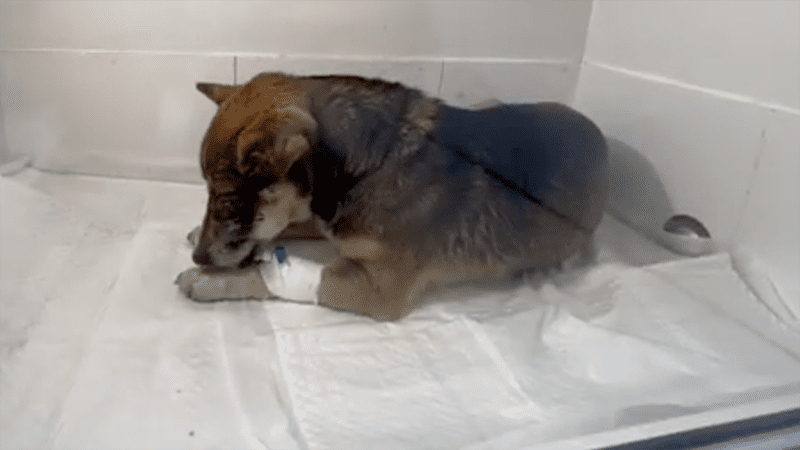
Styopa recovering and happy in the warm, calm, loving veterinary surgery
Experiencing Styopa’s journey from a roadside hole to a warm clinic bed reminds us again why this work matters. Because of supporters like you, we could act swiftly. Because of your generosity, Dr. Stepu had the resources to operate immediately. Because of your compassion, Styopa — this “crowned” survivor — gets to write the next chapter of his life.
Barsik’s head was painfully locked to one side
Picture a cat unable to look straight ahead — whose world had become permanently tilted to one side. This was how animal rescuer Lyudmila first encountered the stray cat Barsik on the streets of Ukraine, and the sight broke her heart.
Barsik’s head was locked in an unnatural position, twisted sideways as if frozen in perpetual confusion. Along with a painful abscess and an infected wound on his tail, this little fighter was trapped in his own body.
But Lyudmila saw beyond the twisted posture to the soul beneath. She gently scooped up Barsik and gave him the name that means “little leopard” — because she recognized the fierce spirit hiding inside this broken form.
At the veterinary clinic, Barsik’s mystery unfolded a little. An inflamed bone near Barsik’s ear had been causing excruciating pain, forcing him to hold his head in that heartbreaking sideways position just to find relief. For who knows how long, he’d been living in a world viewed only from an angle, unable to experience the simple dignity of holding his head high.
Surgery was Barsik’s only hope for freedom. As he went under anesthesia, it wasn’t just his inflamed bone being treated — it was his chance to see the world straight again.
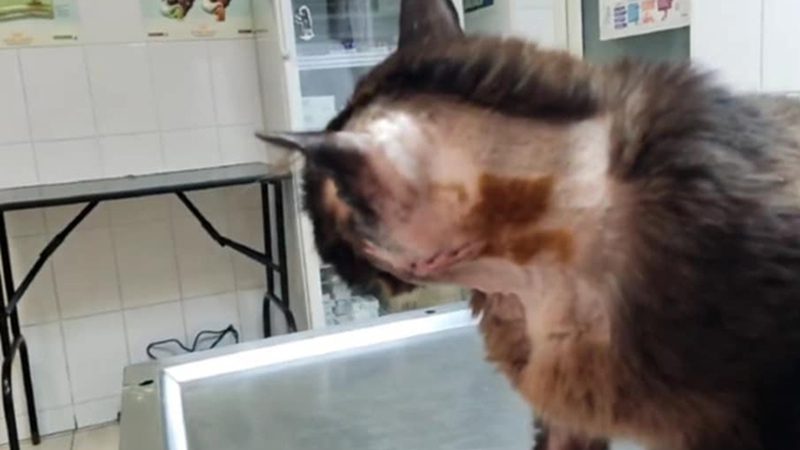
Barsik’s surgery was able to swiftly release him from a life of discomfort and pain
Today, thanks to Lyudmila’s compassion and your support of the ROLDA Rescue Team, Barsik is healing. Now this little leopard can lift his head with pride, turn it freely in any direction he chooses, and look directly into the eyes of those who saved him.
Sometimes healing means straightening what pain has twisted. That’s exactly what love did for Barsik. And it has also unlocked his warm, comforting purr, confirming he is once again content in himself.
In the shadows of an old Romanian churchyard, a tiny cat barely out of kittenhood was fighting for her life—and the lives of her unborn babies. At just one year old, Xena was far too young to be facing motherhood, but the harsh reality of street life doesn’t wait for cats to be ready.
An elderly woman who had made it her quiet mission to watch over the neighborhood strays found Xena in distress, struggling through a birth that was going terribly wrong. Without hesitation, she reached out to The Great Catsby, a ROLDA partner charity she’d worked with before. Thanks to emergency surgery, Xena and her two precious kittens survived what could have been a tragedy.
But survival on the streets is never just one battle—it’s an endless war.
When Hope Turns to Heartbreak
Months passed, and slowly, cruelly, Xena began to fade. The woman who had saved her watched helplessly as this young mother grew thinner and thinner, her condition deteriorating before her eyes. Worried about veterinary costs but knowing she couldn’t wait any longer, she contacted us again.
What we found broke our hearts.
At just three years old, Xena weighs only 2.75 kilograms—barely more than a large bag of sugar. Her tiny body is ravaged by parasites, her skin inflamed with painful dermatitis. We suspect mycoplasma, a bacterial infection often spread by the very fleas that torment street cats daily.
But perhaps most heartbreaking of all is her mouth. Xena suffers from caudal stomatitis, a agonizing condition that makes eating—something most of us take for granted—a source of constant pain. She’ll need nearly all her teeth removed. Her once-beautiful fur hangs in matted clumps because grooming herself hurts too much to bear.
And still, we fear there’s more. Her blood work suggests she may have FIP—Feline Infectious Peritonitis—a diagnosis that would explain her rapid decline. We’re waiting for test results, hoping against hope that we’re wrong.
This is Life on the Streets
Xena’s story isn’t unique—it’s heartbreakingly typical. Across Romania, thousands of cats face this same desperate struggle every single day. Too young pregnancies, untreated illnesses, parasites, starvation, and diseases that would be manageable with proper care become death sentences on the streets. But here’s what gives us hope: Xena’s story doesn’t have to be repeated endlessly.
Breaking the Cycle
Every cat we sterilize is a future prevented from this suffering. Every spay surgery means dozens of kittens won’t be born into a world where survival is measured in days, not years. Every intervention today prevents countless Xenas from facing these same battles tomorrow.
ROLDA works on two crucial fronts: rescuing cats like Xena who are already fighting for their lives, and preventing future generations from ever having to fight at all. Both are equally vital, and both require your help.
Right now, we have the opportunity to make a real difference—not just for individual cats, but for the entire stray population. The choice is ours: continue watching this cycle of suffering repeat, or take action to break it.
Will You Help Us Rewrite These Stories?
Xena is receiving the medical care she desperately needs, but she represents just one cat among thousands. Your monthly support helps us reach more cats like her while funding the sterilization programs that will ensure fewer cats face her struggles.
Become a monthly supporter today and help us create a future where no cat has to fight this hard just to survive.
Because every cat deserves better than a life spent simply trying not to die.
A first-hand account by Dana Costin, Founder of ROLDA
At ROLDA, we like to say that our volunteers are the heart of the charity. The passion, dedication and determination of our volunteers make such a difference that they help shape our future.
Small charities can be highly dependent on volunteers, especially when they cannot afford to pay salaries and hire staff for day-to-day activities. So, it is thanks to volunteers that the World is often transformed in amazing ways by small grassroots causes in the direction that we hope it will one day become.
Throughout my life, I have focused on ROLDA. But when emotionally compelling opportunities started appearing for me to volunteer with like-minded causes in Ukraine, I couldn’t resist. Looking back over the last three years, I might have changed a few things, but at the time, urgency was a priority, and so I made my choices based on my principles, judgment and followed my heart.
The first time I met Ruslan, he picked me up in an old, basic vehicle that had seen better days. What struck me most wasn’t the car—it was his incredible driving skills and his fearless passion for speed. What some might call dangerously fast driving, I quickly realized, was actually a survival skill that had kept him alive through three years of war. Ruslan lives in Kharkiv, a region that has been a hotspot of military action since the invasion began. While some Ukrainian residents in safer areas live relatively peacefully, Ruslan has chosen to remain in an area where death and destruction rain down constantly. Some territories in his region have been lost and regained; others remain under occupation. The permanent shelling and ground attacks have transformed entire cities and villages into mountains of ruins.
As most of the population fled abroad or to quieter areas in Ukraine, Ruslan and his team remained to save animals from depopulated zones or regions evacuated by the authorities. At some point, he also helped people who, until the very last moment, refused to abandon their homes and move only when invading ground troops were almost at their doorstep.
A few days ago, I met up with Ruslan again. I wanted to volunteer again to help with the ongoing task of extracting animals from the war zone. And if I were returning close to battle zones under fire, where situations rapidly change, and exposure to bombs and bullets is a very real threat, I wouldn’t choose many people above Ruslan.
Each time I travel to Ukraine, I must prepare myself mentally. I want to be an asset, not a liability. While I hope to document the lifesaving work that ROLDA supporters make possible, I must prioritize the mission: find animals that need help, secure them, and make a safe, swift exit. Then repeat.
Explaining my trips to colleagues, supporters, friends, and family is always a delicate matter. They have my best interests at heart, and I understand their concerns. Each journey is emotional, upsetting, and undeniably a little dangerous. But I feel compelled to go—these animals have no one else.
For my recent trip, I drove a total of 2400 km from my town in Romania to where I met Ruslan in Kharkiv, with a little detour along the way. My detours were to deliver dry and canned food for dogs and cats in two different cities in the Northeastern Part of Ukraine, both near the frontline. Things quickly became very serious once I met Ruslan, and our mission took us as close as 5.5 km from the live shooting zone, where Russians were bombing a forest where they thought the Ukrainian army hid.
Not long ago, Kupiansk used to look like any other city in the Kharkiv region. Kupiansk was under Russian occupation for some time, but was later retaken by Ukrainian forces. As a result, most of the buildings are now in ruins, and the people who remain there lead exceptionally tough lives. I witnessed something again that I had learned on previous trips to Ukraine: the people who choose to live here now are fiercely tough and proud. It is a genuine honour to help those who dedicate and risk their lives to help the animals abandoned here. When they risk so much, I consider my volunteering the very least I can do to encourage and support them.
Before we arrived, bombs were shaking the ground from 8 am until 12 pm. And soon after we arrived, the warning alarms started, and we could hear the noise of bombs not very far into the forest, which we could then see beginning to burn. Watching Ruslan’s reactions was enough to gauge how close the danger was. He also used personal connections in the military that he had developed to help protect himself and his team and maximise the success of his higher-risk missions. It seems to me that he has become such a skilled specialist that he enjoys the adrenaline thrill from the risk and the reward of successful rescues. I believe he wouldn’t even now swap this self-carved role for a classic, well-paid, six-figure office career.
While visiting, I observed Ruslan giving instructions to new volunteers on how to handle animals. Now, I am not fluent in Russian or Ukrainian. So, I didn’t know exactly what he was discussing with his team, but his gestures reminded me of my own beginnings and how I trained the animal carers at the large ROLDA shelter to correctly enter and exit an enclosure without letting untrained, scared dogs escape when opening the door.
Ruslan’s organization had to move the shelter location because of the battlezone, and they have built new animal enclosures in their new location. I could see that the new shelter is a beautiful place for volunteers to spend time and be helpful for the cause they care about. However, strict rules are in place to ensure it runs smoothly, with correct safety instructions to keep staff and animals safe from dangers and also control diseases.
“Staying away from dangers” is somewhat idealistic in the present context in Ukraine right now; the day after I left Kharkiv, a massive attack with bombs, rockets and drones happened at night and very close to the shelter I had just left. Thankfully, no animals died. But the staff who were there told me it looked like a heavy rain was suddenly coming from the sky, shooting in all directions.
The t-shirt you might see me wearing in a picture or two was a gift from Irina, one of the first people ROLDA was helping when the war in Ukraine started. On the t-shirt back, you see the word for ‘Volunteer’ in Ukrainian: волонтер
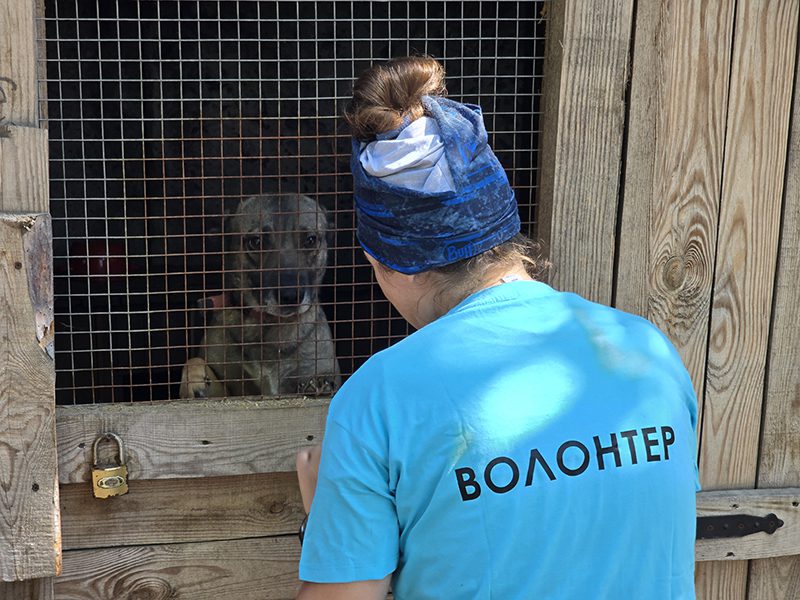
After buying food for animals and visiting her rescue clinic, I went to meet some of the animals that Irina and her small team had rescued. Some are being brought in injured by the military, while the general public finds others.
I believe it is essential for our supporters to see the animals they help recover, of which the vast majority are doing well, and all are being well cared for.
When we got closer to the battlezone, Ruslan stopped the car and gave me a bulletproof vest to put on, but curiously, no helmet. Immediately, I noticed he wasn’t wearing a helmet or a vest. I told him he should at least take back the bulletproof vest he had given to me, since he was a lot more valuable and necessary than I am today. When he refused, I asked him, laughing, why I need a vest if our heads are not protected, especially since drones shoot from above. He replied very casually, “The head is tough”.
Wearing my t-shirt from Irina, I have a sensation, a kind of gut feeling, that the power of fighting for what you love somehow gives you a protective shield that helps you overcome obstacles; it makes you tough.
As I return from Ukraine, I feel a strong sense of fulfilment, purpose and determination. The people I met there, the incredible front-line animal heroes like Ruslan and Irina, are, in conjunction with ROLDA supporters, doing exceptionally important work. Lots of people like pets, but when war comes, they become low-priority, forgotten victims.
The pets of Ukraine have been largely forgotten, and many suffer unimaginably as a result. But I have once again experienced first-hand the life-saving difference that distant, caring animal lovers from around the world can make by donating to the ROLDA Rescue Team.
And I had the privilege to read in those little scared eyes of each animal he holds that there is an immense gratitude that pushes that man further every day, with no protection equipment, with “tough head” and a big heart for the cause he risks his life for over and over.
On a quiet road in Ukraine, a dog lay trembling in the dirt. Her leg was bent at an unnatural angle. She had likely been hit by a car. No collar, no identification, and no one nearby to help. Her name is Hanna, and her story is heartbreakingly common across Eastern Europe right now.
When we found Hanna, her femur was fractured. But thanks to emergency surgery and care funded by compassionate donors, she is now in a safe foster home. Hanna’s recovery is a small victory in comparison to the ongoing crisis of strays.
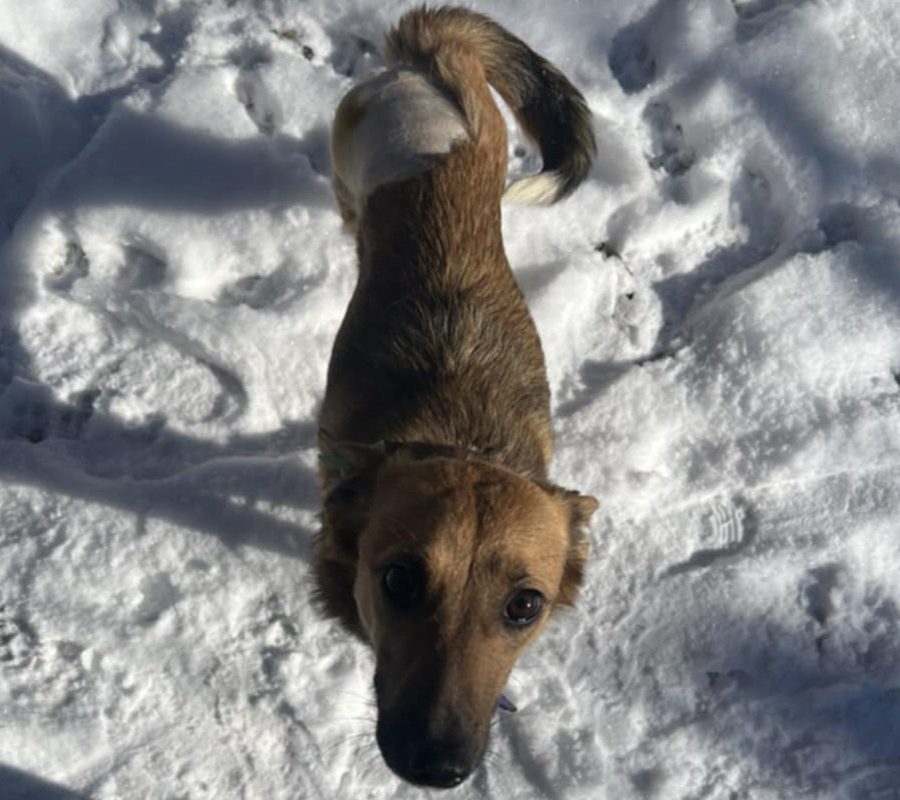
The sheer number of stray dogs and cats is unimaginable in Ukraine and next door in Romania. Economic hardship, limited access to affordable veterinary services and Russia’s war on Ukraine all contribute to the cycle of neglect and abandonment.
Many dogs are now born on the streets to mothers who have never known a home themselves. Other dogs were abandoned by owners who could no longer care for them or were forced to flee because of the war. At no fault of their own, highly domesticated dogs and cats across Ukraine and Romania have been left helpless to defend themselves.
With no one to look after them, these animals face unimaginable hardships. Intense injury and illness without veterinary care mean hundreds of animals lose their lives unnecessarily. Starvation and dehydration, especially during winter, add even more stress to their survival. Despite these silent killers, the stray population continues to grow due to unchecked breeding and a deficit of spay and neuter programs.
This is why stray neutering charities and active animal shelters are so essential right now. With the horrific conditions of the Ukrainian and Romanian stray populations, immediate action needs to be taken to help these animals. ROLDA and others like us are able to provide medical treatment and rehabilitation for animals in every situation. From abandoned house cats to dogs trapped in war zones, we know that every animal deserves a second chance at life. We help these animals off the streets to shelter, foster care and eventually adoption, where they can recover, physically and mentally, from all they have fought against.
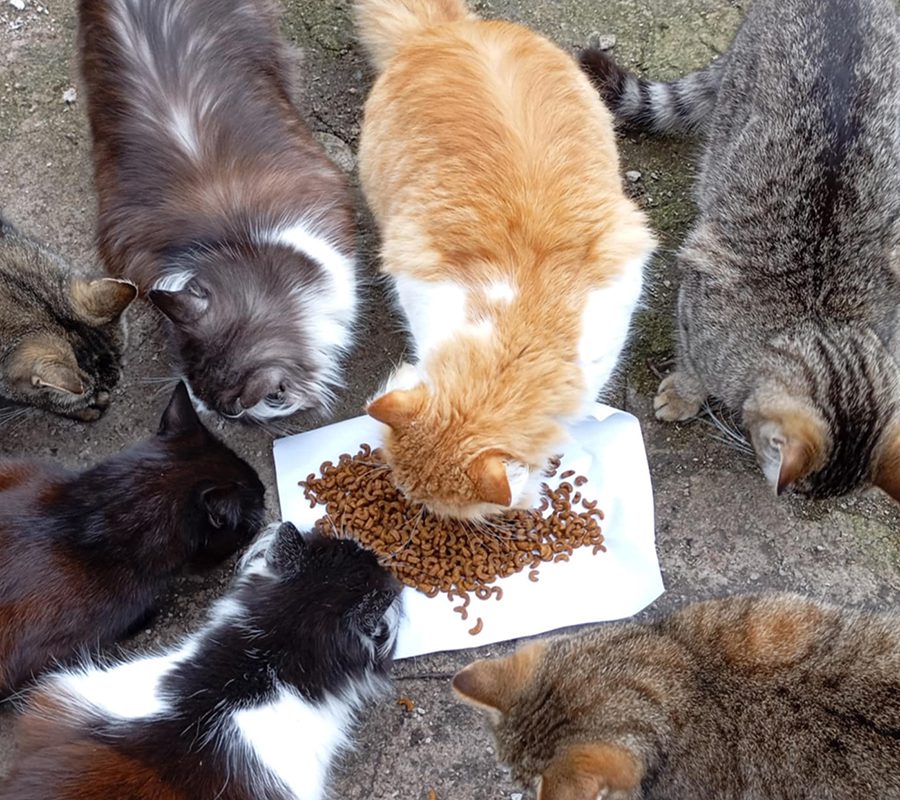
Hanna’s journey from the streets of Ukraine to the safety of a foster home is just one small story in a much larger movement—a movement of hope, compassion, and action. The fight for animal welfare in Eastern Europe is far from over, but with every rescued dog, every successful adoption, every life saved, we move closer to a future where no animal is left behind.
 non-US support +44 (0)161 531 8801
non-US support +44 (0)161 531 8801



